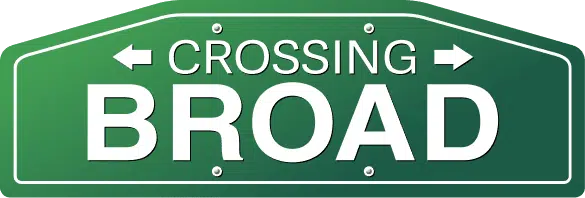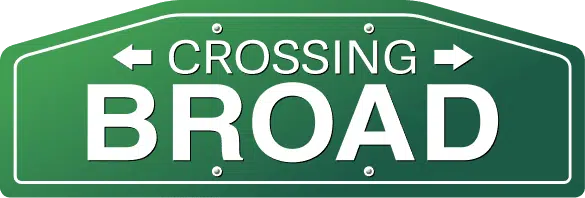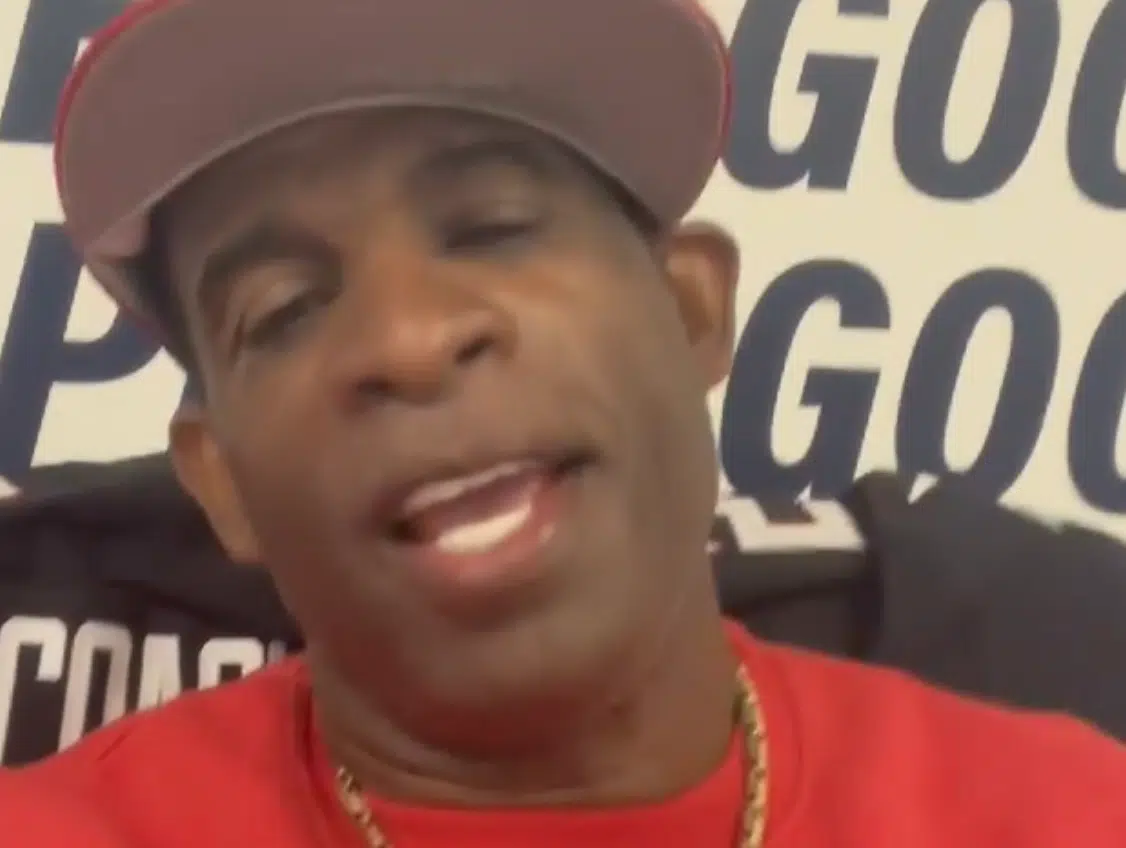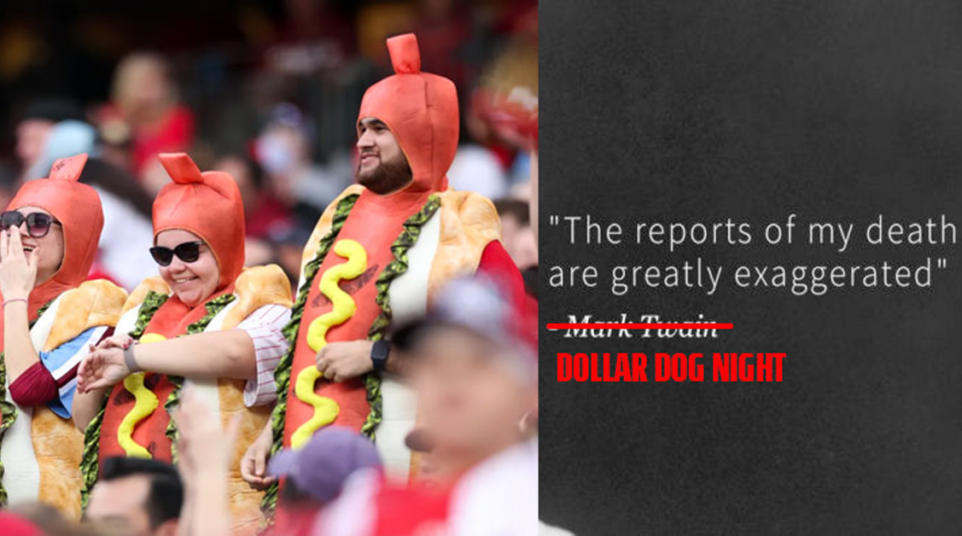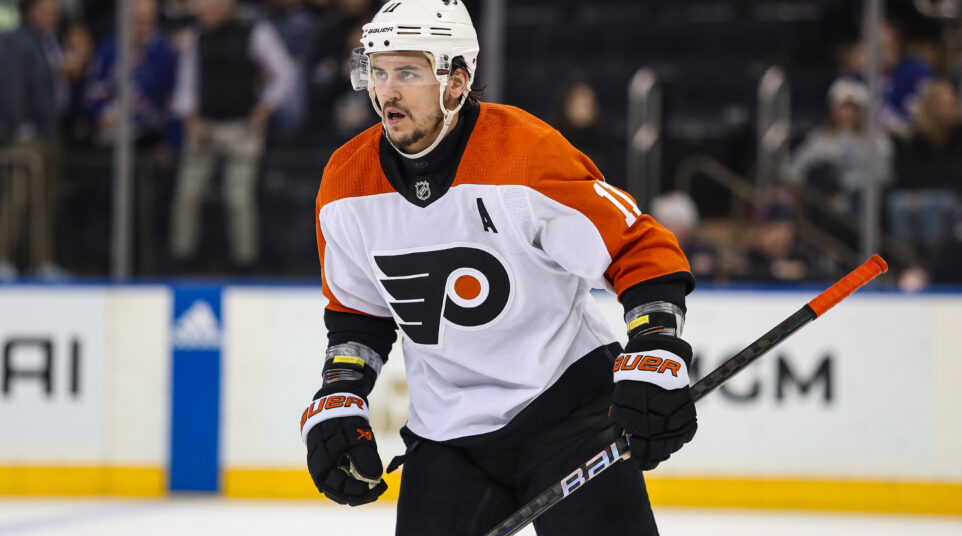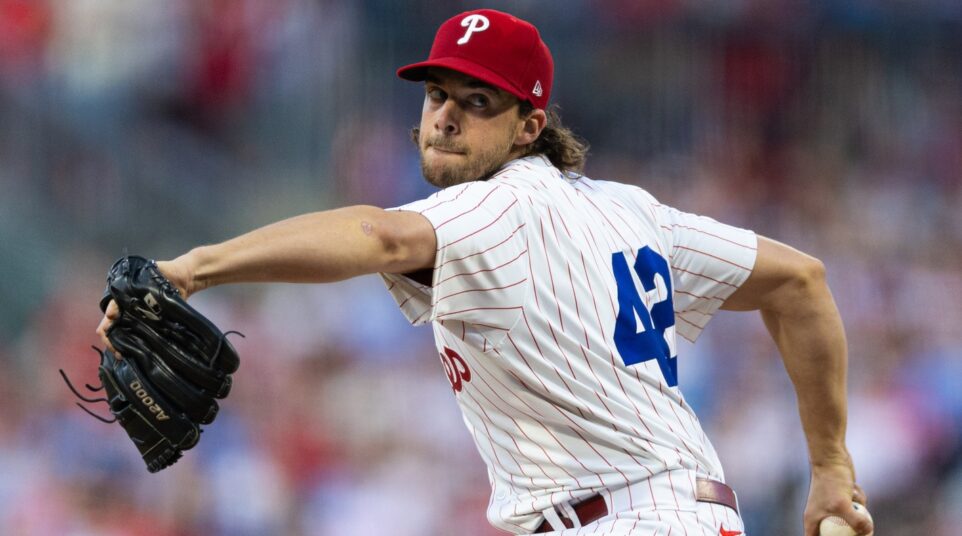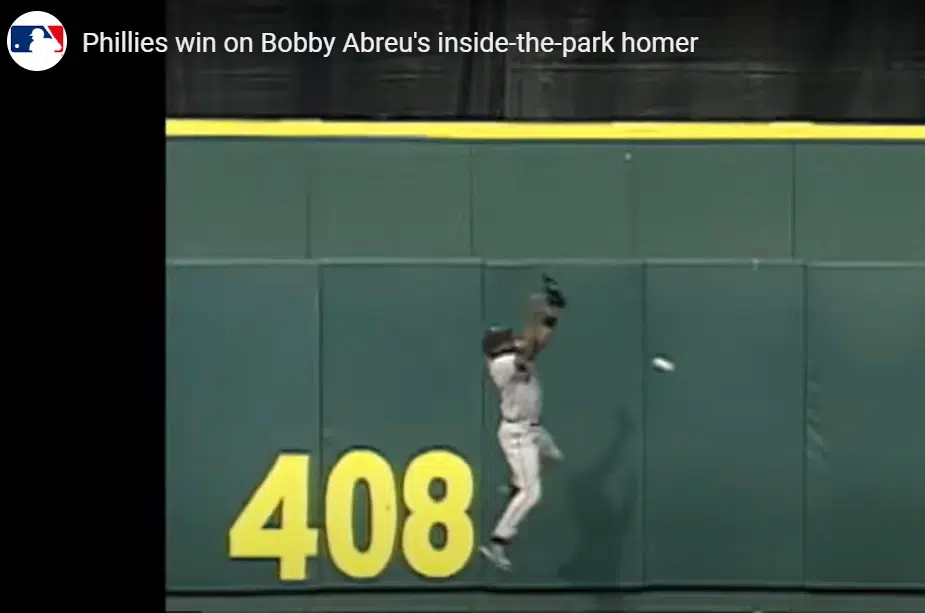
50 in 50: The Best Phillies TV and Radio Calls of the Last Half Century (41-50)
Broadcasting is an art form – especially in baseball, where the game moves slower than other sports. It requires so much more.
You paint bigger, more colorful pictures when broadcasting baseball. You also need to have a great sense of timing, an understanding of the moment, be unafraid of silence, and be especially spontaneous because the moments seem to pop up out of nowhere in baseball more than any other sport.
We have been fortunate in Philadelphia to have some of the best baseball broadcasters in the country over the last half-century. Of course with Harry Kalas and Rich Ashburn as the GOAT tandem in the sport, they covered the first 23 years of my lifetime together, and Harry went further for the next 11-plus seasons as well.
But there have been so many other good broadcasters here in those 48 years.
I had already been thinking about the best calls of my lifetime (since 1974) that took place during Phillies games even before the Phils’ win of the year on Sunday when there were not one but two plays that elicited sensational calls from both the radio and the television broadcast.
It was then that I thought this week would be a good time to make a list. Everyone loves lists. I started by thinking I’d just do a top 10. But then I made a list and came up with 34 calls from memory. It was then I realized this could be bigger. So I started digging around online. I wanted to include broadcasting calls that were from outside the local broadcasts as well and also some other commentary before or during a game that were especially poignant.
I grew the list to 79 strong. Unable to get that list to 100, and not wanting to overdo it, I trimmed the list back down to 50 (which was harder than you think).
Once I was able to cut it down to 50, ranking them became even harder. I wanted to consider everything – what was said (or not said in one very specific instance), the magnitude of the moment, the pure rawness of emotion and joy – or disappointment in some cases – of the broadcasters, and to how likely the words spoken will always be remembered.
For example, and this isn’t on our list because it didn’t occur during a Phillies game, but Jack Buck’s “We will see you tomorrow night,” when Kirby Puckett hit the walk off homer in Game 6 of the 1991 World Series forcing a Game 7 between the Minnesota Twins and Atlanta Braves was so iconic and memorable, that his son, Joe Buck, brought it back 20 years later, spontaneously, when hometown hero David Freese capped off an incredible comeback in Game 6 of the 2011 World Series with a walk off homer that forced a Game 7 between the St. Louis Cardinals and Texas Rangers.
There have been many of those for the Phillies in the last half century. And finding the right order was painstaking, but fun. I went back even two years before I was born, to examine the 50 best calls in the last 50 years because, well, I like symmetry.
I will be releasing my list 10 per day this week with 11-20 next Monday and the final Top 10 next Tuesday. I’ll be curious to see if you agree or disagree.
And when all is said and done, let me know if I missed any. If I did, I will do a follow up post of my egregious mistakes.
Although, I’m pretty sure I got them all.
So, without further ado…
50. Richie Ashburn’s loophole to ordering pizza on the air.
O.K. so, this wasn’t really a call – which is why it comes in at No. 50 on the list – but I thought it was a fun way to start. It’s also the only call on this list not available online (if it is, please send it to me and I will update immediately!). But it’s such a great story and such a great indication of how much fun listening to Harry and Whitey call ballgames was for those of us who were lucky enough to grow up in their era.
For those that don’t know the story, there is a family-owned pizza joint near the ballpark called Celebre’s. It was a restaurant frequented by Ashburn, among others in the Phillies organization, and very often, when the Phillies were playing home games in the evening, Celebre’s would send over some pizzas for the broadcasters.
Every time they did, Ashburn, would thank Celebre’s for the pizzas on-air.
The problem was, Celebre’s was not a paid sponsor for the broadcast, so the Phillies told Ashburn he couldn’t mention them anymore.
One particular game, Ashburn was craving their pizza, and decided the best way to get the pies delivered was to ask for them during the live broadcast. However, he couldn’t mention the name of the restaurant.
So he came up with an alternative plan.
Ashburn used to do the birthday announcements for the Phillies during the broadcast. So, when it came time to wish everyone a happy birthday, Whitey snuck one more “wish” in before he was done.
“I’d like to send out our best birthday wishes today to the Celebre twins – Plain and Pepperoni,” he said.
Sure enough, two pizzas from Celebre’s arrived in the booth. Just brilliant.
49. Terry Mullholland throws the first of only two no-hitters at Veterans Stadium
The Vet was not necessarily known as a hitters park, but it surely had it’s fair share of offense – and not so many epic pitching performances. Oh, there were some. but, no-hitters weren’t a thing there – either for the home or visiting teams. In fact, there had never been one thrown there in the first 19 years of its existence.
Then, on a swampy mid-August evening (Aug. 15, 1990), Mullholland took the mound against his former team, the San Francisco Giants. And he was flawless. He threw just 105 pitches. He faced the minimum number of batters you can face in a game – 27. He had eight strikeouts. The only thing that prevented him from tossing a perfect game was a throwing error by third baseman Charlie Hayes that Mulholland immediately erased with a double play on the very next hitter.
Maybe it was poetic justice that it was Hayes made a nice, lunging catch to finalize the no-hitter.
The Kalas call is so rhythmic, it’s almost like he knew exactly how long to pause between each sentence and hit that mark to a tee with each sentence. It was the perfect blend of explanation and also letting the audience at home be able to share in the roar of the crowd at the Vet. Of course, the call is accentuated with Whitey’s trademark “OOOOOOOOOHH” after Hayes makes the grab. Great call.
48. John Kruk homer caps a crazy comeback and pisses off Dodgers manager Tommy Lasorda
Chris Berman’s “back, back, back, back” call on ESPN eventually became ridiculous, but before ESPN was being watched in every sports fan’s household in America, Berman was a very good play-by-play guy for the network.
Just six days after Mullholland’s no-no, the Phillies were in Los Angeles to face the Dodgers and found themselves trailing 11-3 in the top of the ninth (Aug. 21, 1990). Lasorda grabbed a cup of coffee, sat on the bench, arms folded and figured he’d watch the end of his team’s win comfortably.
Not so fast. The Phillies mounted a furious rally, and with one out, had climbed within three runs and got the tying run to the plate in John Kruk.
Kruk crushed a Tim Crews pitch into the right-centerfield bleachers at Dodgers stadium to tie the game. Lasorda smacked his coffee mug across the dugout in disgust. And Berman gave several memorable lines, besides his trademark “back, back, back, back.” The “Uh oh,” on the swing is awesome.
“WE’RE TIED UP.” is great, as is the pause to take in the reactions around the stadium. Then, “I don’t believe I’m seeing this,” is tremendously spontaneous, likely because he didn’t want an already long game going longer (It would be a 3 and-a-half hour special), but it added to the beauty of the call.
Oh yeah, the Phillies would add one more in the ninth after Rod Booker singled, stole second and scored on a double by Carmelo Martinez, to win the game 12-11 in nine innings.
47. Bobby Abreu hits a walk-off, inside the park home run to beat San Francisco
The 2000 Phillies were the final year of irrelevance before things started to slowly turn around for the franchise. They had pretty much sucked every year since coming two wins away from a title in 1993. They would lose 97 games in 2000 and then Larry Bowa would lead the 2001 team to 86 victories as they started a seven year push for a title.
But on August 27, 2000, the Phillies were just playing out the string, and were stuck in the middle of a boring 1-1 tie with the Giants as the game slinked into extra innings.
The Giants brought in lefty reliever Aaron Fultz to face Abreu, who was leading off the inning. He drove a 1-1 pitch to deep centerfield. Giants outfielder Calvin Murray leaped to catch it, it ticked off his glove, and Harry took us the rest of the way home.
What makes the call special is Harry’s brilliance of building the excitement tone by tone in his voice. He had that instinct, in his prime, when he knew if a ball had a chance to be a big hit. He knew Abreu was busting it out of the box, and once it kicks off Murray’s glove, he knew third base coach John Vukovich was a gambler and would send Abreu. It was just mounting from one word to the next and was a fabulous call.
46. Bryce Harper’s grand slam against the Angels could help turn the season around
Let’s be honest, both TV and radio had great calls of both home runs from Sunday. So much so that I definitely feel they were top 50-worthy. For the Harper call, I went with the television broadcast.
That’s because all three guys in the booth contributed. You won’t hear Mike Schmidt’s contribution below, but just before the pitch, he talks about how there was a certain energy building in the ballpark and that the fans could feel it and the players probably could too.
It was very prescient of him.
John Kruk’s “YEAH, BABY” is awesome. Tom McCarthy gives a great call and his line about “blowing the lid off” the stadium was perfect, because before that inning, it was kind of quiet and moribund in the ballpark. If you don’t know how the game finished, where’ve you been the past few days? But hang tight, we’ll get to the finish a little later in this list.
45. Pat Burrell walks it off with a home run against the Giants
I almost didn’t include this because Harry actually makes a mistake in his call. He says the home run occurs in the ninth inning when it was actually the 10th, but, it was kept in because of the gravity of the moment and where it took place in a special season for the Phillies.
The date was May 2, 2008. The Phillies had an up and down start to the season, but found themselves entering the game against the Giants 16-13 and in first place for the first time all season.
The problem was that the Phillies offense was a bit inconsistent early on. Jimmy Rollins was hurt. Ryan Howard couldn’t make contact. Shane Victorino was off to a terrible start. The only guys who were being productive for the Phillies were Burrell and Chase Utley.
Burrell was on fire. Through the first 29 games, he was hitting .333 with an on base percentage of .454 and an OPS of 1.131 with 8 homers and 26 RBI.
So, when the Phillies were about to lose a game to the Giants, and fall back out of first place and continue to hover around .500. Burrell stepped to the plate and set off a wild celebration.
Harry was laughing while saying Burrell’s name. It was so unbelievable that he was so good to start the season and that he was finding ways to win games for the Phillies. Harry wasn’t going to question it. And that’s what made the call special. It was a fun win and an early sign that this team might be really, really good.
Burrell would immediately cool off after this moment, hitting just .232 the rest of the season, but there was that double in Game 5 of the World Series so…
44. Tommy Greene no hits the Expos in Montreal
It’s kind of the forgotten no hitter in Phillies history. There have been 13 of them. Many of them memorable. But aside from the combined no hitter thrown in 2013, there aren’t many that slip the mind like Tommy Greene’s.
That’s because it occurred on a rare, Thursday afternoon game in Montreal (May 23, 1991) and also occurred in a game where Greene had walked SEVEN Expos. He also had 10 strikeouts, so he was effectively wild in his 130 pitches.
The last out is hit right back to him and Harry gives us great alliteration in the moment with the “Great grab, Greene” line (leaving out the “by,” and likely intentionally).
It was also worth noting he mentions Mulholland being the first out of the dugout to hug Greene, since he had thrown the last no hitter, and that the Expos fans were appreciative of the feat as well. He was always so good at finding these little things to make the moment memorable.
43. Jimmy Rollins is back
Jimmy Rollins had missed the better part of two months with injuries early in the 2010 season. He returned on June 22, and went 0-for-4 against Cleveland.
The next night though, he reminded everyone just how important he was to the Phillies lineup.
Down a run in the bottom of the ninth and with a runner on, Rollins stepped to the plate. He was already 0-for-4 in this game too, so he was struggling to find his timing coming back from injury.
But not in the ninth inning. Not in the big moments in which he thrived. Instead, he gave us this:
Tom McCarthy’s call was superb. Not only did he give us an elongated “GOOONNNNNE” on the home run, but then he gave a haunting warning to the rest of the National League “He’s BAAAAACK!” Is one of Tom’s more memorable calls. Really good stuff here.
42. Bryson Stott’s first big moment
I told you we’d get to this one. Again, both TV and radio had great calls here. But for this one, I went with the radio version.
Just search my feed, usually have them up https://t.co/Ad3vz9Q4Wi
— Nick Piccone (@_piccone) June 6, 2022
Scott Franzke and Larry Andersen are a treasure. Seriously. They are on the cusp of Harry and Whitey territory. YES, they are that good. Franzke’s voice is almost gone after the Harper call earlier, but he finds just the right amount of energy to push it through.
Meanwhile Andersen laughing through the homer, is almost his way of saying, “Just when you thought you’ve seen everything.”
I also love Andersen briefly forgetting that Harper and Stott are both Las Vegas natives and he reminds himself out loud when Franzke mentions their hug.
It’s just a genuine call from two of the best in the business.
41. Kevin Millwood’s 1-0 no-hitter
No-hitters are special events, but they’re even more so when the game is a nail biter. It means the pitcher is throwing in high leverage situations longer than other no -hitters.
Jump out on a team, say, 6-0, it’s a little easier to just pitch your game, but if it’s 1-0 and you are throwing a no-hitter, you still have to be careful not to cost your team a win in pursuit of an individual merit.
That’s what made Millwood’s no-no so special.
Even more so it came against the Giants, who came into the game on April 27, 2003, with a record of 18-5.
And Harry was great the entire game – his calls on Ricky Ledee’s homer and his great catch in the seventh inning to preserve the no-hitter are worth looking up as well, but he was top notch here in the final at bat.
“What a Day.” “Should be it. Should be it.” “Millwood has made history here in the last year of Veterans Stadium.”
And the best part of this call? The color analysts, whoever they were at the time (Chris Wheeler? Gary Matthews?) Staying silent, recognizing the historical nature of the call and letting Harry guide us through. Just professional stuff, all the way around.
Come back tomorrow for No. 31-40.
